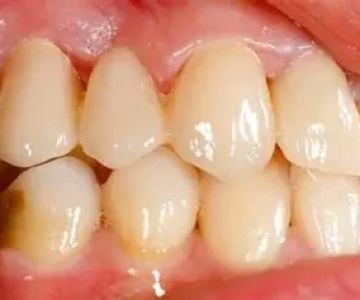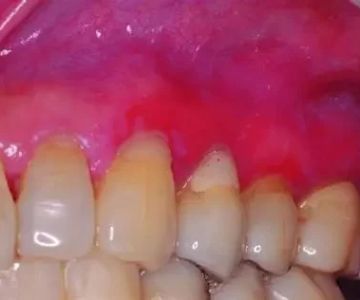
The Correlation Between Oral Health and Cardiovascular Disease: What You Need to Know
1. Introduction to the Connection Between Oral Health and Heart Disease
For years, the general public has been aware of the importance of maintaining good oral hygiene. Brushing your teeth, flossing, and visiting your dentist regularly are essential for preventing cavities and gum disease. However, recent studies have revealed a surprising connection between oral health and cardiovascular disease. Poor oral hygiene can significantly increase the risk of heart disease, stroke, and other cardiovascular complications. In this article, we explore the fascinating link between your oral health and your heart, and why dental care is just as important for your heart as it is for your teeth.
2. Understanding the Basics: What Is Cardiovascular Disease?
Cardiovascular disease (CVD) is a broad term used to describe conditions that affect the heart and blood vessels. It includes a variety of disorders, such as coronary artery disease (which can lead to heart attacks), heart failure, arrhythmias (irregular heartbeats), and stroke. Many of these conditions share a common risk factor: inflammation and the buildup of plaque in the arteries, leading to restricted blood flow and increased strain on the heart. This is where the connection to oral health comes into play.
3. The Role of Gum Disease in Heart Health
Gum disease, also known as periodontal disease, is an infection of the tissues that support your teeth. It starts as gingivitis, which is mild inflammation of the gums, and can progress to more severe forms of periodontal disease if left untreated. Studies have shown that people with gum disease are at an increased risk of developing heart disease. The exact mechanism behind this connection is still being studied, but experts believe that the bacteria from infected gums can enter the bloodstream, leading to systemic inflammation.
In gum disease, bacteria in the mouth cause inflammation not only in the gums but throughout the body. This inflammation can contribute to the development of atherosclerosis, a condition in which plaque builds up in the arteries, narrowing them and making it harder for blood to flow to the heart. Over time, this can lead to heart attacks, strokes, and other serious cardiovascular problems.
4. The Impact of Oral Bacteria on the Cardiovascular System
One of the most significant ways that oral health affects heart health is through the spread of bacteria. In a healthy mouth, the bacteria that live there are generally harmless and can be controlled with regular brushing and flossing. However, when oral hygiene is neglected, harmful bacteria can multiply, leading to gum disease and infection. These bacteria can enter the bloodstream through tiny cuts or sores in the gums.
Once in the bloodstream, these bacteria can attach to the inner walls of blood vessels, causing inflammation and the formation of blood clots. This process plays a role in the development of atherosclerosis. Additionally, the body's immune response to these bacteria can increase inflammation throughout the body, which is a key contributor to heart disease.
5. How Oral Hygiene Affects Inflammation and Heart Disease
Inflammation is a critical factor in both gum disease and cardiovascular disease. Chronic inflammation is known to be a major contributor to heart disease, as it can lead to the thickening of artery walls and the formation of plaque. When the gums are inflamed due to poor oral hygiene, this inflammation can spread to the rest of the body, including the cardiovascular system. The more inflammation in the body, the higher the risk of heart disease.
Research has shown that people with periodontal disease have elevated levels of C-reactive protein (CRP) in their blood. CRP is a marker of inflammation, and high levels of this protein have been linked to an increased risk of heart disease. By maintaining good oral hygiene and preventing gum disease, you can reduce the level of inflammation in your body, thereby lowering your risk of cardiovascular problems.
6. The Link Between Tooth Loss and Heart Disease
Tooth loss is another consequence of poor oral health, and it may also be linked to an increased risk of heart disease. When teeth are lost due to advanced periodontal disease, it may indicate the presence of chronic infection and inflammation in the mouth. This can be an early warning sign of systemic health issues, including cardiovascular disease.
Moreover, tooth loss can impact your ability to chew properly, leading to poor nutrition, which is another risk factor for heart disease. A diet lacking essential nutrients can contribute to high cholesterol, high blood pressure, and obesity, all of which increase the risk of cardiovascular disease.
7. Tips for Protecting Your Oral and Heart Health
Fortunately, there are several steps you can take to protect both your oral health and cardiovascular health. Maintaining good oral hygiene is one of the simplest and most effective ways to reduce your risk of heart disease. Here are some tips for keeping both your mouth and heart in top condition:
- Brush your teeth at least twice a day: Use fluoride toothpaste to clean your teeth and gums effectively.
- Floss daily: Flossing removes food particles and bacteria from between your teeth that brushing might miss.
- Visit your dentist regularly: Regular dental checkups can help detect gum disease early and prevent it from progressing.
- Eat a balanced diet: A healthy diet rich in fruits, vegetables, and whole grains can help reduce inflammation and support heart health.
- Quit smoking: Smoking is a major risk factor for both gum disease and heart disease, so quitting is one of the best things you can do for your health.
- Stay active: Regular exercise can help improve blood circulation and reduce inflammation in the body.
8. The Importance of Regular Health Checkups
If you have been diagnosed with gum disease, it’s important to seek treatment to reduce the risk of complications, including heart disease. Your dentist can work with you to develop an effective treatment plan to manage your oral health. In addition, regular checkups with your primary care physician can help monitor your cardiovascular health and ensure that any risk factors for heart disease are being addressed.
Maintaining both oral and cardiovascular health is essential for overall well-being. By prioritizing good oral hygiene, a healthy diet, and regular medical checkups, you can significantly reduce your risk of developing heart disease and improve your quality of life.







 Gentle Dental Milwaukie3.0 (171 review)
Gentle Dental Milwaukie3.0 (171 review) Jennifer Pichardo DDS PC4.0 (30 review)
Jennifer Pichardo DDS PC4.0 (30 review) Personal Dental Office & Orthodontics4.0 (228 review)
Personal Dental Office & Orthodontics4.0 (228 review) Dr. Denise M. Henderson, DDS5.0 (221 review)
Dr. Denise M. Henderson, DDS5.0 (221 review) Michael C. Byars, DDS5.0 (67 review)
Michael C. Byars, DDS5.0 (67 review) James Silberman, D.D.S.4.0 (56 review)
James Silberman, D.D.S.4.0 (56 review) The Importance of Oral Health Education During Pregnancy for a Healthy Pregnancy
The Importance of Oral Health Education During Pregnancy for a Healthy Pregnancy Why Skipping Dental Checkups Can Lead to Bigger Oral Health Problems
Why Skipping Dental Checkups Can Lead to Bigger Oral Health Problems Best Tips for Brushing Your Teeth Properly for Healthy Gums: Essential Techniques for Oral Health
Best Tips for Brushing Your Teeth Properly for Healthy Gums: Essential Techniques for Oral Health Advantages of Porcelain Dental Restorations
Advantages of Porcelain Dental Restorations How Can Diabetes Cause Tooth and Gum Problems? Preventing and Managing Oral Health Issues
How Can Diabetes Cause Tooth and Gum Problems? Preventing and Managing Oral Health Issues Healthy Habits for Promoting Good Oral Health and Hygiene: Tips for a Healthy Smile
Healthy Habits for Promoting Good Oral Health and Hygiene: Tips for a Healthy Smile